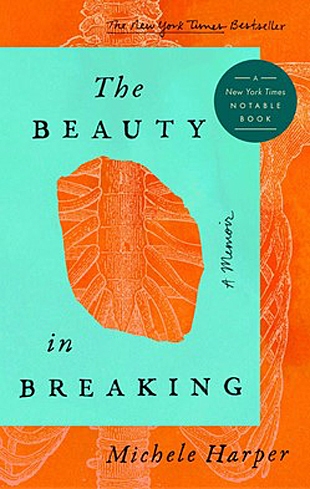Michele Harper’s memoir was a best-seller in hardcover a year ago. It is now out in paperback. We recommend it to you for inspiration and guidance for when you feel broken or if you want to be healthy. Dr. Harper quotes Eckhart Tolle and Thich Nhat Hanh, writes about articles she has read in Shambhala Sun, and describes her yoga and meditation practice, but this is not an overtly spiritual book. It is, however, a companion for self-healing and vision.
Her memoir is full of conversations between her and her patients. Harper was chief resident physician at a hospital in the South Bronx and an emergency room physician at a VA hospital in Philadelphia. These conversations often reveal lessons she has learned about suffering and recovery. In them, Dr. Harper demonstrates a skilled bedside manner as well as the traits of a gifted psychiatrist.
She tells also of patients who disturb her and are rude to her. There are those who have committed crimes and some who are belligerent. For instance, there’s the patient who seems to come from privilege and arrives in a near drug overdose, only to leave an hour later, against doctor’s orders, after receiving only the most basic treatment. Dr. Harper ruminates about his “inner contract” with himself and why he would do this:
“I am not healthy and cannot commit to healing. I am not strong enough to heal. I am fearful, so I must run. I am not worth fighting for. I am not worth healing for. I cannot endure the pain of facing my life.”
But the book isn’t all about her work as a physician. She also tells of her resume-building climb into the ranks of administration, only to realize, “My calling is to heal; that is my truth. While medicine’s current version of hospital administrative work can be both interesting and valuable, it wouldn’t ever bring me closer to being a healer.” So, she leaves the bureaucratic side of her profession behind and refocuses on her work as a medical healer devoted to underserved populations.
Her love life is here, too. She talks of her divorce from a man who could not handle her professional success; a “dismal interlude” of online dating; and having “fallen into an impossible love” with a man whose own divorce had been stalled and who wasn’t good for her. Here, too, she shares lessons learned that feel applicable to everyone:
“I got it … how good people can lose their way during life transitions. How they can behave in self-destructive ways until they master another pattern — should they ever choose another pattern. In my life, I chose a different pattern from the one I was born into, so I would not replay my past trauma with anyone. It was worth creating good with the right person at the right time. I am worth of being healthy with a person who also chooses health. So, I blessed him and walked away.”
Dr. Harper also explains institutional problems that shouldn’t surprise anyone, that “Medicine still suffers from the same discrimination seen in other fields — women are typically not promoted, while underrepresented people of color are blocked from admittance in the first place.” As a Black woman, this she feels keenly.
And she offers many reflections on death, for when the season for healing has passed.
